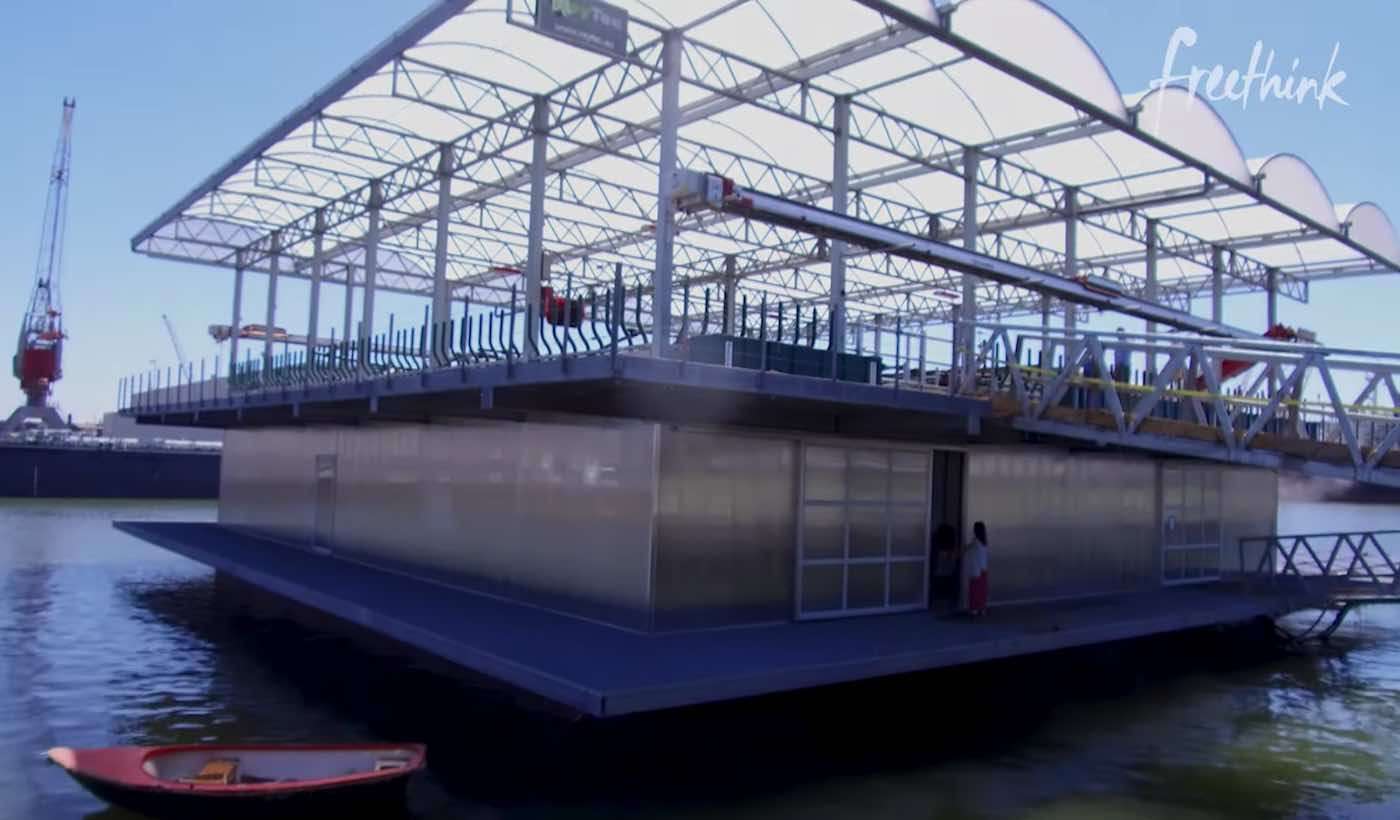Indonesia Looks to its Past to Solve Modern Energy Troubles
One of the nation's most prominent sources of greenery will now be able to power the homes of thousands of rural villagers.

This floating farm in the Netherlands is taking sustainability to a whole other water level.
The food industry is responsible for producing massive amounts of greenhouse gas emissions simply through transporting goods and produce into a city. In fact, one in four freight trucks on the highway is responsible for transporting food into urban areas.
Not only does this create excessive air pollution, it also means that cities could fall victim to food shortages during natural disasters and harsh weather conditions.
Peter and Minke van Wingerden were inspired to build a 3-story floating farm right in their Dutch city of Rotterdam after they found themselves in New York City following Hurricane Sandy back in 2012.
With so many city dwellers clamoring for food and supplies, grocery stores quickly ran out of stock-and the weather conditions meant that no trucks would be able to bring additional supplies into the city until the roads had cleared up.
The Wingerden farm now produces fruit, vegetables, and dairy products right inside of the city limits. A nearby floating platform supports a number of solar panels to supply the farm's electricity; and since the food is also produced on the water, it doesn't contribute to deforestation or valuable land property.
With about 40% of the world's population reportedly living within 60 miles of a shoreline, the Wingerdens hope that their floating farm model will inspire other coastal cities to adopt the eco-friendly new form of agriculture.
(WATCH the Freethink video below) - Photo by Freethink
Plant Some Positivity By Sharing The Fascinating Story With Your Friends On Social Media…
Be the first to comment